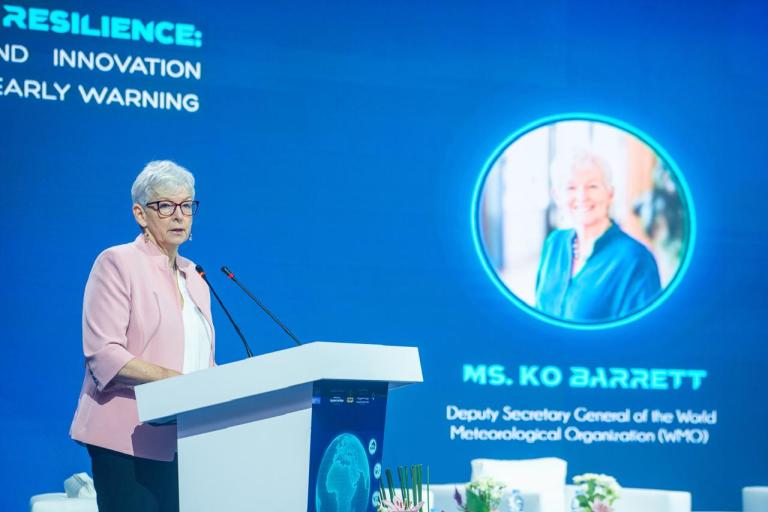The ClimAfrica Forum 2025 brought together governments, development partners, scientists, private sector innovators, civil society, and youth leaders and was held in Skhirat, Morocco, on 30 September to 1 October.
The ClimAfrica Forum2025 has injected new urgency and commitment into Africa's climate resilience agenda and agreed on the urgent need to operationalize Early Warning Systems to meet the escalating threats of climate change.
A concluding conference outcomes statement. affirmed Africa's readiness to shift from fragmented efforts to a coherent, continent-wide early warning architecture, where no person is left behind in receiving timely, localized, and actionable climate information.
"Climate resilience should not be seen as a cost, but as an investment in stability, security, and sustainable development," said World Meteorological Organization (WMO) Deputy Secretary-General Ko Barrett.
"The ClimAfrica Forum is a call to action. A call to recognize Africa not only as a region of vulnerability, but as a region of strength, solutions, and leadership," she said.
"It is a call to accelerate early warnings for all, embrace digital innovation, strengthen national meteorological services, and mobilize financing. Above all, it is a call to build a collective future - one in which Africa's resilience is not just protected but amplified; where African voices are not just heard but lead global action," said Ko Barrett.
The two-day event was opened by Nizar Baraka, Minister of Environment and Water of Morocco. It was anchored in the global momentum of the UN Secretary-General's " Early Warnings for All " initiative and aligned with the WMO Africa Regional Action Plan 2023-2027.
The conference outcomes statement and recommendations agreed on the following priorities:
- Operationalize the "Early Warnings for All" Vision in Africa
- Strengthen the Science-Policy-Practice Interface
- Harness Technology for Localized Solutions
- Unlock Climate Finance for Early Warning Systems
- Empower Communities and Build Human Capacity
- Enhance Regional and Continental Collaboration

WMO commitments to support resilience
WMO is fully committed to supporting African countries in strengthening observation networks, data systems, forecasting capacities, and service delivery across the meteorological value chain, said Ko Barrett.
She focussed on three priorities to save lives and livelihoods and unlock sustainable development.
Multi-hazard early warning systems: Twenty-three African countries now have functional early warning systems in place, and 44 countries are using the Common Alerting Protocol (CAP) to disseminate warnings. But big gaps in observations continue.
Innovation and Digital Transformation has the potential to help Africa leapfrog to more advanced capabilities. Artificial intelligence, Big Data and mobile platforms are revolutionizing the generation, sharing and use of weather and climate information.
- In 2025 alone, 44 national institutions have been supported to modernize their service delivery. Around 70% of African countries are using ClimWeb, the open-source platform developed by WMO, to improve their digital presence and provide real-time information to their citizens.
- The Automated Data Loader is connecting thousands of automatic weather stations to international exchange for the first time. In 2025, 40 countries improved their data transmission.
- More than 22 WMO Information System WIS2 nodes are now operational, providing Africa with a stronger voice in the global observing system.
- In the past two years alone, more than 1,000 new stations have become affiliated to the Global Observing Network. Despite the progress, big gaps remain and Germany alone has more reporting observing stations which comply to international standards than the entire African continent.
Partnerships and Financing for Resilience: The Systematic Observations Financing Facility (SOFF), which is already supporting 24 African countries with over USD 60 million in approved funding. SOFF provides not only initial investment but also long-term grants and peer-to-peer technical assistance.
The Climate Risk and Early Warnings Initiative is building resilience in the most vulnerable countries and communities and reaching the last mile.






